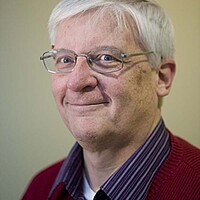Irene Santiago: women are vital peacemakers
Loading...
As a young woman Irene Santiago came to New York City from The Philippines to study journalism at Columbia University. Today as a world-renowned expert on conflict negotiation and the crucial role women can play in that field she still draws on her reporter’s training.
When she’s searching for an approach to a negotiation, a way to “make sense of all these seemingly unrelated events,” she says, “I write a lead paragraph in my head… It really points you toward a strategy.”
Ms. Santiago is probably best known for her role in negotiating a lasting ceasefire between Muslim separatists and the Philippines government – and for organizing a seminal 1995 conference on women’s issues in Beijing that drew 30,000 participants. Today she continues to champion both causes in her native Philippines and around the world.
In the early 2000s the Moro Islamic Liberation Front (MILF), located on the southern Philippines island of Mindanao, was trying to break away from the rest of the country. Santiago saw an opportunity to show that women, even though they are largely noncombatants, could be a vital part of any peace talks.
“I saw a situation where mostly men were trying to solve the problem,” she recalls in a recent interview at the Monitor’s newsroom in Boston. “And I knew that if women did not participate in the negotiations, not only in the peacemaking but the peacebuilding, there was no chance for a peace agreement.”
Santiago studied the issues carefully to make herself an expert on ceasefires. She wanted to be more than just a token woman on the government’s negotiating team. She drew on decades of experience working with the Muslim women of Mindanao.
The result? A lasting ceasefire. “That ceasefire mechanism is as effective today as it was 11 years ago,” she says. “There’s been no violation.”
Another result: The MILF asked Santiago to help train them to transform themselves from a liberation front into a political party that would work from within the political system, she says.
Santiago is not interested in demanding that quotas of women are included in her line of work. “One woman you take seriously is better than 1,000 that you don’t,” she says. “But 1,000 women that you do take seriously is far better, of course.”
Women have perspectives that are vital to successful negotiations. “Women have life experiences that are different from men,” she points out.
Today, Santiago’s Mindanao Commission on Women, a nongovernmental organization, works to ensure that gender issues are part of the overall peace process in the region.
“Irene is iconic. She’s one of the few women in history who’ve worked their way into peace talks, and she’s demonstrated the difference women make as they take a humane approach to cross barriers,” says an e-mail from Swanee Hunt, a former US ambassador to Austria and chair of The Institute for Inclusive Security, a think tank on the role of women in diplomacy in Washington, D.C. “Policymakers need to recognize that there are countless Irene’s around the world, expert women leaders who are untapped resources to ensure stability in place of chaos and violence.”
Santiago credits her drive and self-confidence to her upbringing.
“My parents molded me in an evenhanded way. You could be anything you wanted to be,” she says.
Her mother was the head of a music school and provided a model of how to be an efficient organizer, whether at work or home. Her father taught her public speaking, a rarity for girls in The Philippines. In high school she participated in oratorical contests.
“It meant that I was confident [speaking] in the public space, which is what very many girls don’t have,” she says. “The public space is my space. I can be there.”
Now Santiago is working on organizing an international conference on women, peace, and security, planned for 2015. But she wants to go beyond holding yet another conventional gathering.
“We don’t need another conference, we need a campaign,” she says. “We need a movement. Because people have to see that there can be no durable peace without women. It’s not possible.
“Whether it’s climate change, whether it’s peace, whether it’s governance, women can influence the kind of change that we would like to have. We can make human life more human.”







